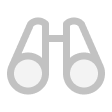Ranitidine
Uses
Ranitidine is used in the treatment of gastroesophageal reflux disease (GERD) and peptic ulcer disease.
How it Works
How Ranitidine Works Ranitidine is a histamine H2 receptor blocker that decreases the production of stomach acid. It alleviates acid-related indigestion and heartburn.
Side Effects
Common side effects of Ranitidine include headache, diarrhea, and gastrointestinal disturbances.
Expert Advice
- Take Ranitidine before going to bed if you are taking this medication once a day.
- It is highly effective in controlling stomach acid that is released during sleep.
- If you are also taking other medications to treat acidity (e.g., antacid), take them 2 hours before or after taking Ranitidine.
- Avoid soft drinks and citrus fruits such as oranges and lemons, as they can irritate the stomach and increase acid secretion.
- Inform your doctor if you do not feel better after taking Ranitidine for 2 weeks, as you may be experiencing other underlying issues.
- Notify your doctor if you have ever been diagnosed with kidney disease, as your medication dosage may need adjustment.
- Do not discontinue the medication without consulting your doctor.
- Ranitidine is generally well-tolerated and considered safe, with a very low incidence of side effects.
- You can take Ranitidine with or without food.
Other Combinations
Ondansetron + Ranitidine
Drotaverine + Ranitidine
Ranitidine + Domperidone + Simethicone
Ranitidine + Magaldrate + Domperidone
Domperidone + Ranitidine + Simethicone
Chlordiazepoxide + Clidinium + Dicyclomine + Ranitidine
Magaldrate + Ranitidine
Dicyclomine + Ranitidine
Domperidone + Ranitidine
Related Medications
₹47.7
MRP ₹125.5
₹6.8
MRP ₹43.2
MRP ₹6.6
₹5.4
MRP ₹6.6
₹3.1
MRP ₹6.6
₹3
MRP ₹6.6
₹2.5
MRP ₹6.6
₹6
MRP ₹6.6
₹6.1
MRP ₹6.6
₹6
MRP ₹6.6
₹3.6
MRP ₹6.6
₹121
MRP ₹125.5
₹7.5
MRP ₹15
₹4.9
MRP ₹15
₹4.8
MRP ₹15
₹4.8
MRP ₹15
₹50.4
MRP ₹15
MRP ₹11.3
MRP ₹15
₹146.5
MRP ₹125.5
₹56.3
MRP ₹30.9
₹2.5

₹2.4

₹3

₹2.4

Flat ₹100 off on first app order | Use Code: APP100 |
Flat ₹100 off on first app order
USE CODE: APP100

Download Now